Glad Mad
Vi leverer sund og lækker frokost til virksomheder og uddannelsesinstitutioner
An interview with Lars Werner Thomsen and Jesper Michelsen, the founders and directors of Glad Theatre
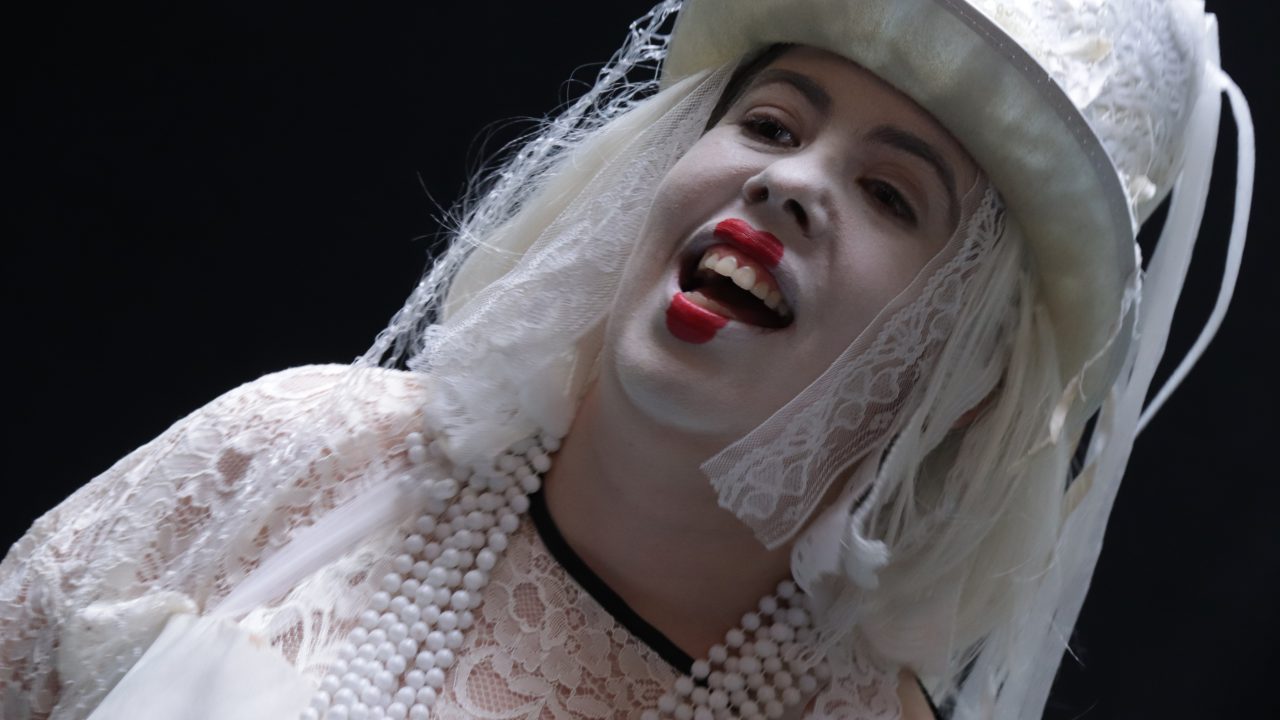
By Bjarne Ledet Larsen
Glad Theatre is a Danish inclusive arts theatre located in Copenhagen, Denmark. A professional touring theatre ensemble with 16 actors/actresses, two directors and four administrative staff members. The theatre is built on three cornerstones – Performing Arts, Outreach and Social Economics. “At Glad Theatre, we want to give the audience an extraordinary and original experience with the potential to create change. We just plant the seed,” the two directors say, “Our actors make it grow and their unspoiled, original and unique performances show us how to make courageous decisions. Our actors are role models.”
Lars Werner Thomsen and Jesper Michelsen are both the founders and directors of Glad Teater. They have been working together for more than twenty years and compliment each other well in their different roles. In this interview, they elaborate on their thoughts about inclusive arts theatre and try to describe what Glad Theatre is all about.
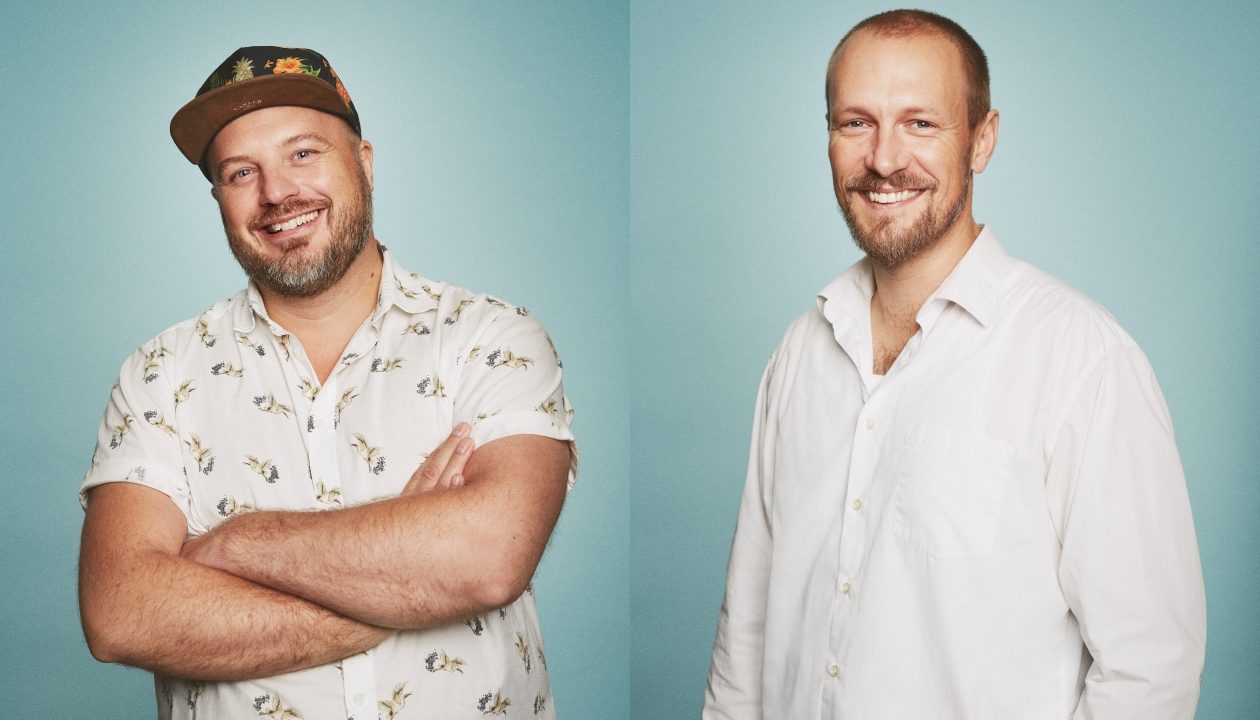
What is special about Glad Theatre?
Lars: We are a rather large ensemble that goes to work here every day. We consider this a workplace, and therefore, as with other companies, we have PDD (Personal Dialogue Development), Risk Assessment in the Workplace and so on. We have, and do, all the things a normal company does and has. As a result of this, we insist on using the titles: colleagues, director, actors and other professional terms. We don’t have clients; we have employees. And we deliberately articulate that we are a professional touring theatre ensemble. There is a lot of linguistic psychology in this. Of course it affects our actors’ self awareness, and that is necessary because we see them as role models in our society.
Jesper: What also is special about us, is that our work starts with our actors and the meeting between them and the material, the story. Many of our performances are built from scratch. We like to work in very different universes, and frequently transcend both shape, form and themes. If you look at our performances in a bigger picture, you will see, that we are very courageous in our choices every time. It is clear that a new experiment is taking place every time.
Do you use all 16 actors?
Lars: No, far from all 16 are being used in every performance. But they are all a part of the process of developing ideas and creating common experiences. We handpick the actors for each performance. Their strong sides are very different and because of that, we are able to create very, very different performances. We are in a constant process of investigation and experimentation of the unique characteristics and talents our actors have to offer, and how we can use that in our performances.
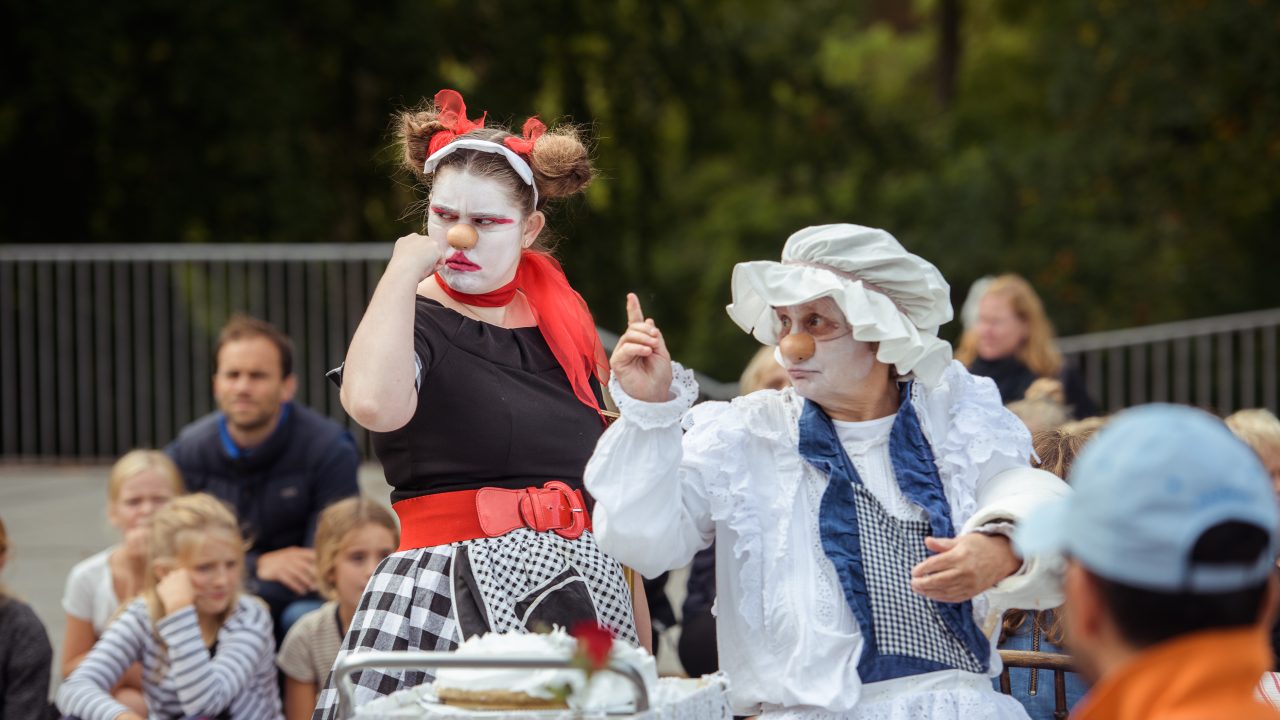
What are the Outreach-projects and what is their purpose?
Lars: Outreach-projects have several purposes. In the course of time we have learned that what we are doing here at Glad Theatre can be used in many ways. It can be transferred to other meetings, for instance with teacher students or a class in elementary school or as teambuilding in a company. It gives us all a chance to learn more, and our wish is that people remember our performances. It is clear that the more senses you use, or activate, during a performance, the more it gets stored within you.
Magic moments occur where you experience equality with the actors, that you didn’t expect to be equal with. Sometimes the handicap is lifted and you recognize that all your prejudices have been put to shame. Maybe you would normally avoid our actors on the street, maybe it’s not nice to stare at them because they are different. But our actors are generous beyond belief, they are the most impressive human beings. They have the courage to be on stage in front of hundreds of people and totally honest when delivering the story. I mean, the material comes from them. It’s very courageous. In that sense our actors are pioneers. Let me give you an example. If we attend a course at a teacher’s college, our actors dare more than most of the teachers students ever will in their lives.
What can the rest of the world learn from Glad Theatre?
Lars: You could instead ask the question “What can the rest of the world learn from any of the performing arts”. The performing arts help us to digest the experiences we have and the challenges we face in our lives. The performing arts help us to understand ourselves and the world in which we live. You can also use the performing arts to point out a direction for what we want to create in the future. In real life there are more questions than answers, and it’s not like we just give the answers. Here at Glad Theatre we turn on the spotlight and ask more questions, and because our actors are disabled, they constantly see things from a surprising, original perspective. Our actors are unique and they constantly amaze us when we discuss artistic questions. This is highly relevant and immensely interesting. It also gives the answer to WHY you should make inclusive theatre. If you ever have been excluded you know the need to be included, so the need for inclusive theatre is always relevant.
We need to get out in the world, because when our actors make shows full of heart, it is important that we tour as much as possible. It is important that we also perform in the rural countryside, in schools, in companies and abroad. Again: it’s about the meeting between the actors, the material and the audience. We think that other countries should experience our shows because our performances deal with fundamental living conditions that most people can relate to. We sincerely want an exchange. Other countries need to meet us, and we need to meet other countries. It’s in the meeting, inclusion gets real.
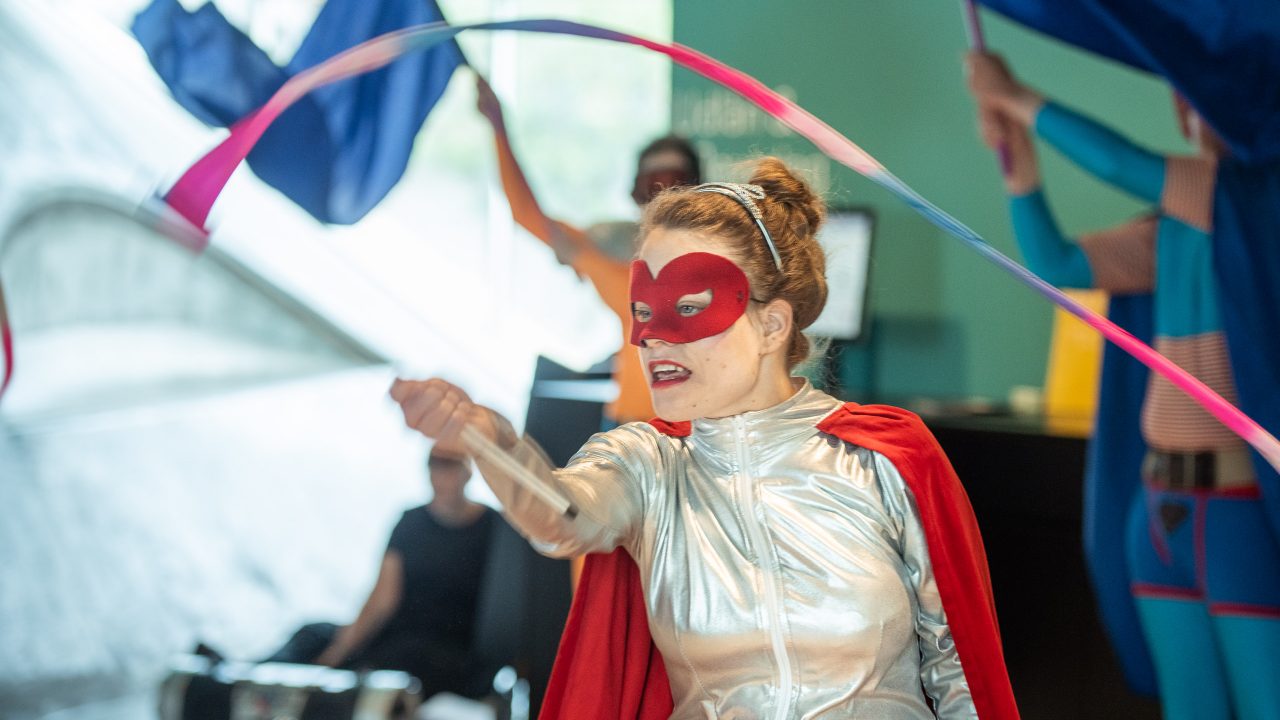
Performing Arts
One of the three foundational cornerstones of Glad Teater is Performing Arts.
Glad Teater is very keen to push the limits of self-knowledge. The goal is that the meeting between actors, the story and the audience, creates a change on several levels, both internal and external. The Performing Arts section is divided in two. “Glad X” is the forum for the daily training and also the forum for testing new, offbeat ideas. The other section is “Production” where performances and events are made and carried out.
Outreach
The second foundational cornerstone is Outreach. The goal is for the performing arts to reach further out, beyond the audience rows. In this section of Glad Theatre we reach out to schools, companies and the world around us. One of the most successful projects Glad Theatre has performed is the show Heroes. This show has been performed more than 40 times since 2014. It’s basically a training camp for children and youth from 10 years and up. In the show the children are trained to be heroes of everyday life. The teachers are the actors from Glad Theatre. Dressed in hero-costumes they guide the participants through exercises that challenge their identity and give them a strong sense of what is right and what is wrong. The participants end up with a clear idea of how they can make a change and make the world a better place.
Other Outreach projects have been courses at teachers training colleges, elementary schools and companies, where the goal again has been increasing awareness about the ability to create change, the ability to be innovative, the ability to be courageous, the ability to create a room for original ideas to grow and also the ability to regard disabled people as individuals bursting with potential.
Social economics– the third foundational cornerstone
Glad Theatre produces stage performances, events and many other things, but within the productions lies another essential goal: to develop and educate Glad Theatre’s actors into professional performers, able to perform on all platforms: the stage, the movies, the labour market and in society in general. Glad Theatre celebrates each of the actors who, by virtue of their disability, contributes to the performing arts with their own, completely unique form of expression. Thereby the concept of what is not possible, is turned into what IS possible, and the disabled performer is the only one who can do this! It is a skill and ability that empowers and supports actions, also outside Glad Theatre. We believe that the above mentioned is the most important condition necessary to create inclusion: actual and truthful inclusion that is a success and a hugely valuable resource in society.
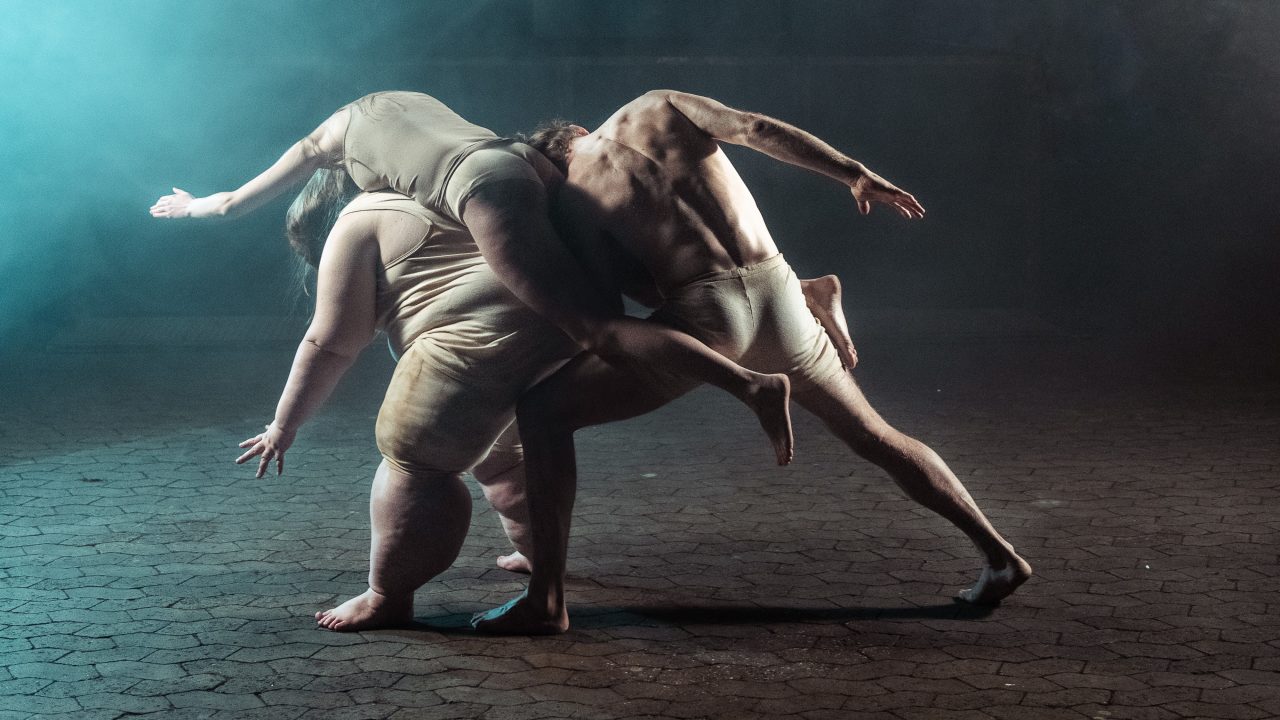
How are inclusive arts doing in Denmark?
Jesper: My feeling is that awareness about inclusive arts is greater outside Denmark. For instance if you travel to England and mention the concept of inclusive arts, then people know what you are talking about. I’m not so sure that so many people in Denmark know it. Compared to other countries the conditions for disabled people have historically been very different in Denmark. In the 1950´s we had a groundbreaking law, that significantly improved the conditions for disabled people. But as the years have passed we have seen the other side of the coin. Now conditions have reached a level, where you never see a disabled person in the street, because they live in protected housing, are being driven to closed activities and so on. In that sense they are almost being excluded from everyday life, because of “the kindness” they are being treated with.
But if you talk about inclusive arts theatre in general, I believe that all inclusive arts theatres are different. The approaches to making theatre have been very different. Some theaters started as a day care project and then along the way turned into a professional theatre. Some theatres have handled this transition cleverly, and succeeded in developing their artistic quality along the way. Others still seem to be struggling with the non-productive victim-mentality towards disabled actors. In the summer of 2018 I held a lecture for more than 40 theater directors from 21 countries, and it was striking that most of them were astounded when I told them that we were a professional touring theatre. Many of them still had the idea that if it was inclusive theatre, it meant that we had to take care of the actors, and then we automatically got close to the victimization scenario, and that’s a completely different approach than the one we have when we make theatre. At our theatre it’s not a given that anyone can be a member of the theatre ensemble. Applicants are tested and work through two trial periods before they are offered a position. So our approach is more business-like. We demand a lot from our actors, but at the same time we praise their uniqueness.
What are your thoughts about your approach to making theatre with disabled people?
Jesper: Well, the reason I go to work every day is that I am interested in making a change, and since my background is theatre, my platform is theatre. For me it’s all about our audience, and all the people that are involved in our projects, whether it’s external artists or pupils in schools, so that they get this almost tactile, extrasensory, intellectual and emotional experience that gives them a sense of the world as bigger, wider and more diverse, than they maybe imagined in the first place. And this diversity, or the stories that occur in the meeting, is the reason that they reach the understanding that…..hey, here is someone who can do something extraordinary….maybe I can also do something. We plant a seed, and we hope to create a change in the world, also on a larger scale.
How?
Jesper: If we perform a show in front of children or young people, and they see a blind actor, they will get the perception, that “Hey, an actor CAN be blind, and not only can an actor be blind, she can also be really, really awesome. Here I am as a young person with all my doubts and questions”. Maybe the young person doesn´t know what step to take in his or her life, but here in front of them is a role model who shows them something which they, in their wildest imagination, never saw coming. And the role model touches their feelings and something happens inside them, and it makes sense somehow. The youngster doesn’t know how it makes sense, but it feels right and gives them the courage to take the next step in their own life. Because if a disabled person has the courage to stand up on a stage and do THAT, and do it so well, and so convincingly, then I can also be courageous and take some daring life-changing choices.
The world today has some gigantic challenges, and the requirement for being able to solve them, the requirement for being able to evolve as a species and not settle, is that we begin to make some new and different decisions. And these decisions take courage, and they demand that we put our insecurity in the spotlight and not just act “as usual”
Glad Theatre currently have three performances available for international touring and one more coming up
Go to list